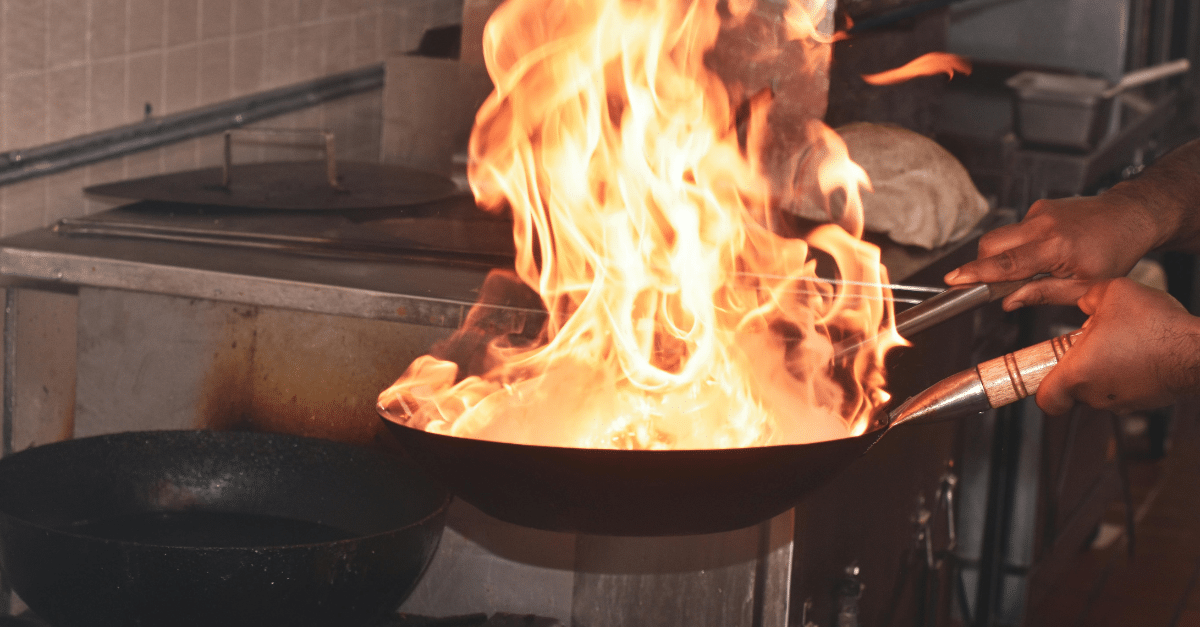The Hidden Dangers of Poor Ventilation Cleaning (TR19)
In the fast-paced environment of a commercial kitchen, the focus is often on the quality of the food and the efficiency of the service. However, lurking above the cookline is a hidden danger that, if ignored, can have catastrophic consequences: the kitchen’s grease extraction system. Poorly maintained ventilation systems are one of the most common causes of fires in commercial kitchens, and compliance with the TR19 standard is not just a recommendation; it’s an insurance necessity.
This article explores the hidden dangers of poor ventilation cleaning and explains why adherence to the TR19 standard is crucial for the safety, legality, and reputation of your business.
What is TR19 and Why Does It Matter?
TR19 is the leading industry specification for the fire risk management of grease extraction systems. Developed by the Building Engineering Services Association (BESA), it provides a standardised framework for the cleaning and maintenance of kitchen ventilation systems to minimise the risk of fire. For any business operating a commercial kitchen in the UK, TR19 is the benchmark for due diligence and a key requirement for most insurance policies.
Ignoring TR19 is not just a safety risk; it is a direct threat to your business continuity. In the event of a fire, failure to provide evidence of regular, compliant cleaning can lead to:
•Invalidated Insurance Claims: Insurers will often refuse to pay out if it is found that the fire was caused by a poorly maintained ventilation system.
•Legal Prosecution: Under the Regulatory Reform (Fire Safety) Order 2005, business owners have a legal duty to manage fire risks. Negligence can lead to hefty fines or even imprisonment.
•Reputational Damage: A fire can permanently damage a business’s reputation, leading to a loss of customers and trust.
The Hidden Dangers: More Than Just a Fire Risk
While fire is the most obvious and devastating risk, the dangers of poor ventilation cleaning extend far beyond the immediate threat of a blaze.
1. Health and Hygiene Hazards
A dirty ventilation system is a breeding ground for bacteria, mould, and pests. Grease and food particles accumulate in the ductwork, creating an ideal environment for pathogens to thrive. These contaminants can then be circulated back into the kitchen, compromising food safety and leading to:
•Foodborne Illnesses: Bacteria such as Salmonella and E. coli can contaminate food preparation surfaces.
•Pest Infestations: Rodents and insects are attracted to the build-up of grease and food debris.
•Poor Air Quality: Staff are forced to breathe in contaminated air, which can lead to respiratory problems and other health issues.
2. Reduced Equipment Efficiency and Increased Costs
When a ventilation system is clogged with grease, it has to work harder to extract air. This leads to:
•Increased Energy Consumption: The fan motor is placed under greater strain, leading to higher electricity bills.
•Premature Equipment Failure: The increased workload can cause the fan and other components to wear out more quickly, resulting in costly repairs or replacements.
•Unpleasant Working Environment: Poor ventilation leads to a hot, smoky, and uncomfortable kitchen, which can affect staff morale and productivity.
3. Environmental Risks
Grease-laden air that is not properly filtered can be released into the atmosphere, creating unpleasant odours and contributing to air pollution. This can lead to complaints from neighbouring businesses and residents, and may even result in action from the local authority.
The TR19 Cleaning Process: A Professional Approach
A TR19-compliant clean is a thorough and systematic process that goes far beyond a superficial wipe-down. Here’s what a professional clean should involve:
Step | Description |
1. Initial Survey | A qualified technician will assess the system, identify access points, and take pre-clean measurements of grease levels. |
2. System Isolation | The system is safely shut down and isolated from the power supply. |
3. Deep Cleaning | All accessible components, including the canopy, filters, ductwork, and fan, are cleaned using specialised equipment and food-safe chemicals. |
4. Post-Clean Testing | Grease levels are measured again to ensure they are within the compliant levels specified by TR19. |
5. Reporting | A detailed post-clean report is provided, including photographic evidence, a certificate of cleanliness, and recommendations for the cleaning frequency. |
This report is a crucial document that serves as evidence of compliance for insurers and regulatory bodies.
How Often Should You Clean Your System?
The frequency of cleaning depends on the level of use:
•Heavy Use (12-16 hours a day): Every 3 months
•Moderate Use (6-12 hours a day): Every 6 months
•Light Use (2-6 hours a day): Every 12 months
Choosing a TR19 Compliant Cleaning Partner
When selecting a company to clean your ventilation system, it is essential to choose a partner that is a member of BESA and can provide evidence of their training and certification. Ask for:
•Proof of BESA membership
•Examples of post-clean reports
•References from similar businesses
•Details of their insurance coverage
Conclusion: An Investment in Safety and Success
TR19 ventilation cleaning is not an expense; it is an essential investment in the safety, compliance, and long-term success of your business. The hidden dangers of a poorly maintained system, from fire and health risks to legal and financial penalties, are simply too great to ignore.
By partnering with a certified TR19 cleaning specialist, you are not just cleaning your kitchen; you are protecting your staff, your customers, and your reputation. Don’t let a hidden danger become a headline disaster.
Ready to ensure your kitchen is safe and compliant? Contact Perfect Clean Ltd. today for a free, no-obligation survey of your ventilation system. We are BESA-certified TR19 specialists, dedicated to protecting your business.



